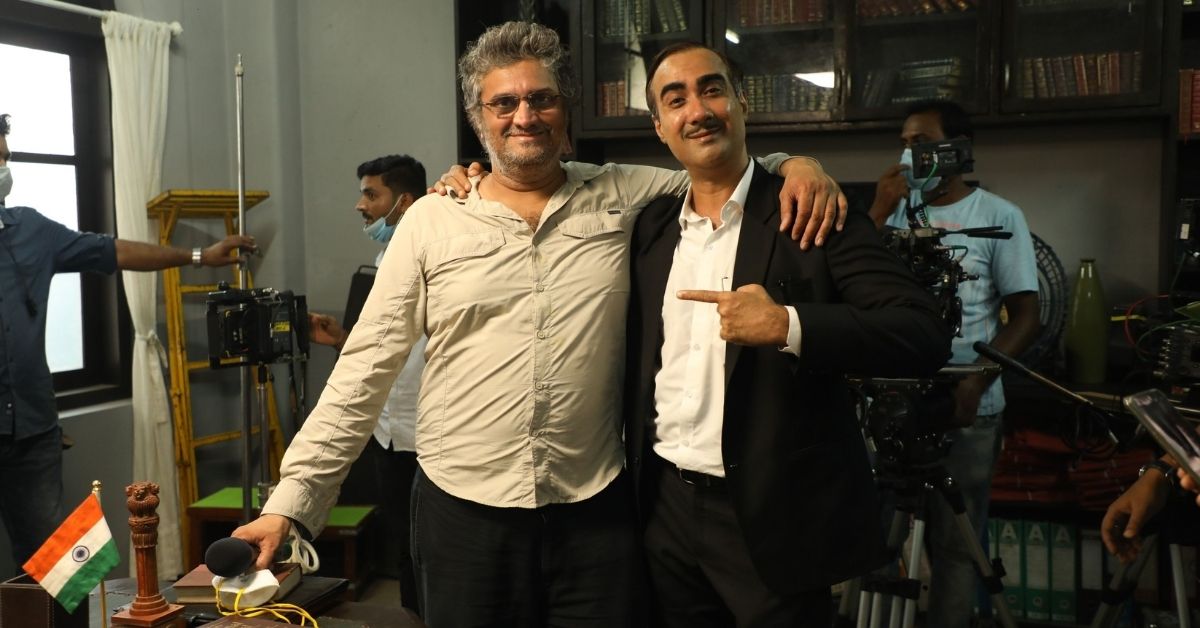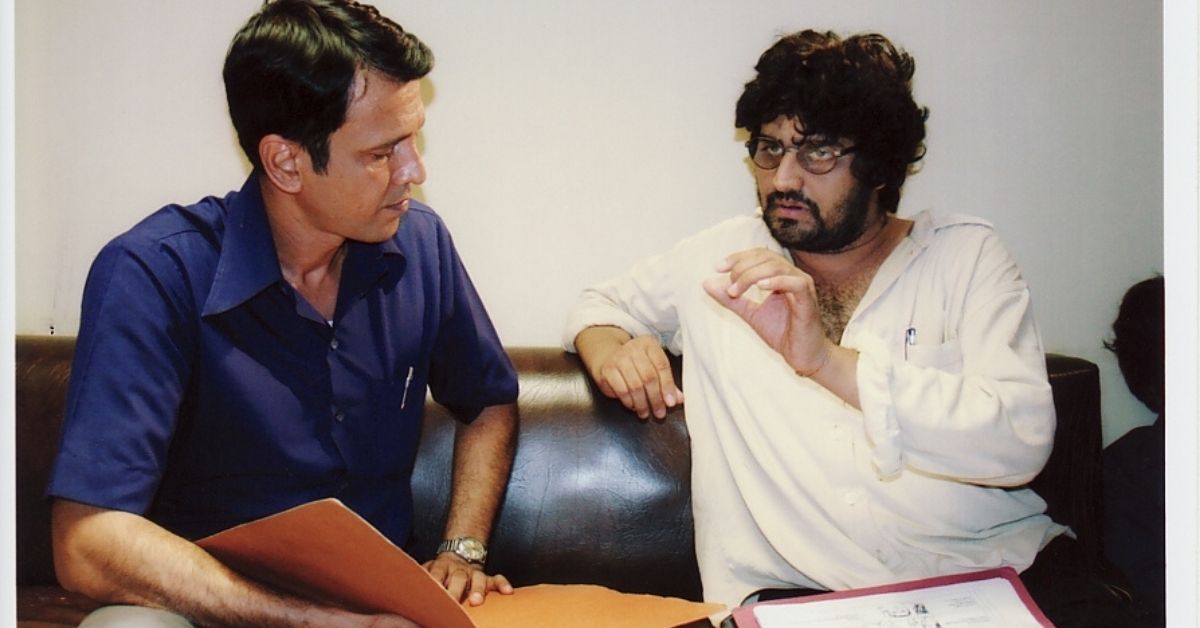In 2004, after having worked in the corporate sector for six years, Manish Gupta finally quit his job to pursue his real dreams in the film industry. This may sound like yet another example of an engineer making the bold decision to switch his career mid-way, but Manish’s journey into movies is a bit different.
For starters, he had no connections in Bollywood, and pursuing a film degree at the age of 27 was out of the question for him. So what other avenue did he have to chase his dreams?
A literal chase, perhaps – Manish says that he spent a year and a half trying to meet his favorite director, Ram Gopal Verma.
The chase paid off, and in 2005, Manish wrote his first movie, Sarkar, starring Amitabh Bachchan. He then went on to weave a stellar career graph, with thrillers such as Darna Zaruri Hia (2006), The Stoneman Murders (2009), Rahasya (2015) and Section 375 (2019).
Ahead of his latest release 420 IPC, starring Vinay Pathak, Ranvir Shorey and Gul Panag on Zee5, The Better India chats with Manish, the boy who grew up in the bylanes of crowded Mumbai, about what it takes to make risky decisions, and his transition from being an engineer to copy writer, and finally, director.
How to bag films 101

As a bright student born in a family of engineers, pursuing the field was an organic decision at first, he says. After four years of engineering at Bandra’s Father Agnel college, Manish took up a 9-5 job.
If he was so passionate about movies, why did he wait six years to leave?
“Sometimes, it takes a while to realise that you don’t want to do this for life. Before directly jumping into films, I worked in ad agencies for a brief period to get a taste of the media industry. I gave a written test followed by an interview. It was an organised process, contrary to what happens in Bollywood. In movies, no one asks your resume or makes you take a test,” Manish says.
He was writing copies by the day in the office and nights were reserved for script writing till he completed it.
Manish took the script and approached RGV.
“I grew up on a movie appetite that showcased realism, and Ramu was one director whose movies I resonated with. After seeing Company and Satya, I was keen on working on a similar project. After a lot of persuasion, he agreed to see my script and gave me an opportunity to write Sarkar,” recalls Manish.
Impressed with his work for Sarkar, RGV offered him four more scripts the same year. A year later, Manish made his directorial debut in Darna Zaroori Hai.
Recalling his first day on the set as a director, Manish says, “I was only 28 with no experience. The closest I had come to making films was shooting corporate videos during my ad stint. My assistant director and DOP knew much more and they even mocked my style. But I decided to not let that affect my craft. Learning to stand my ground and believing in my work was my first lesson in movie making.”
Another important takeaway for Manish while directing was being honest to the craft. He had succumbed to the pressure to include an item song in Stoneman Murders from the producers.
“I am very proud of the film, but the song looks inorganic in the plotline and I wish there was a way to change it. Having a clear vision of your work is necessary in order to churn good content,” he notes.
On making suspense thrillers

Manish’s filmography has revolved around narratives of suspense. Whether it is Rahasya, a 2015 thriller based on the 2008 Arushi Talwar case, Stoneman Murders, inspired by a serial killer of the 80s, or Section 375, which revolves around the misuse of law – all his scripts are inspired from real or near real-life instances.
The movies showcase different viewpoints without being preachy or judgemental. His writing leaves that for the audience to do.
“I choose subjects based on how intriguing or absurd they are, but something that could have happened in reality. While the twists can certainly gauge more viewers, the research side can be a bit tricky. If the research is inaccurate, it can send a wrong message or worse, distort facts. I spent nearly three years attended 157 court hearings and spoke to survivors of rape, families of the accused, and other stakeholders to write Section 375,” he says.
Though 420 IPC is not based on a true story, the court proceedings are as real as they can get, says Manish. The movie revolves around a chartered accountant arrested for bank fraud and forgery.
“It is a very intricate plot with several twists. This one does not have a social message and is an out and out entertainer,” says Manish who recently completed shooting for his upcoming venture ‘One Friday Night’ starring Raveena Tandon.
When Manish looks back at his journey he is grateful for all the bitter and sweet experiences, including the one where he says a director stole his script.
“I am not someone who is easily discouraged. If I see a problem, I punch it till it succumbs. My only advice to aspiring filmmakers is to enter this profession only if you are sure, as it consumes a lot of resources, energy and time.”
Edited by Divya Sethu
No comments:
Post a Comment